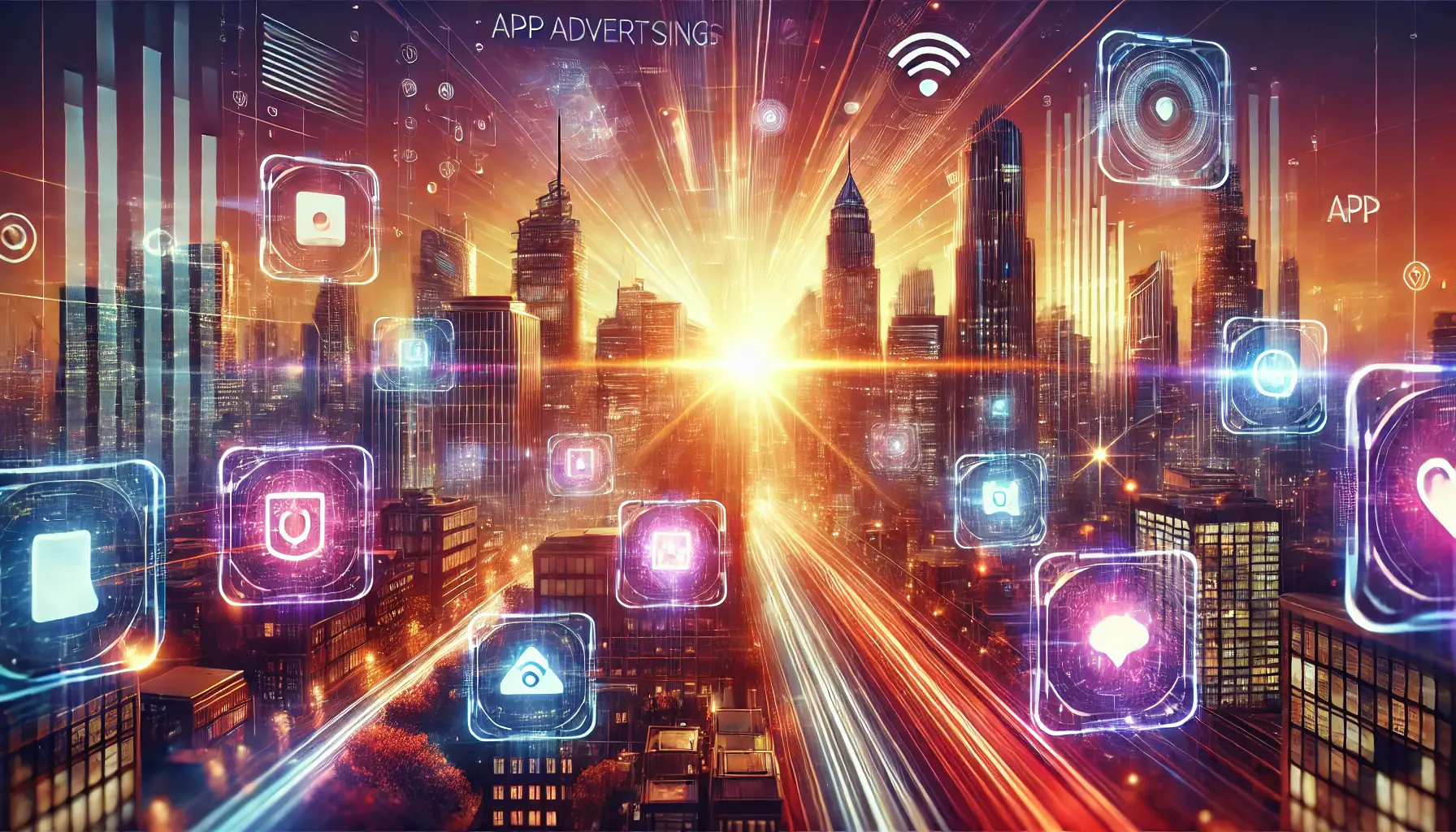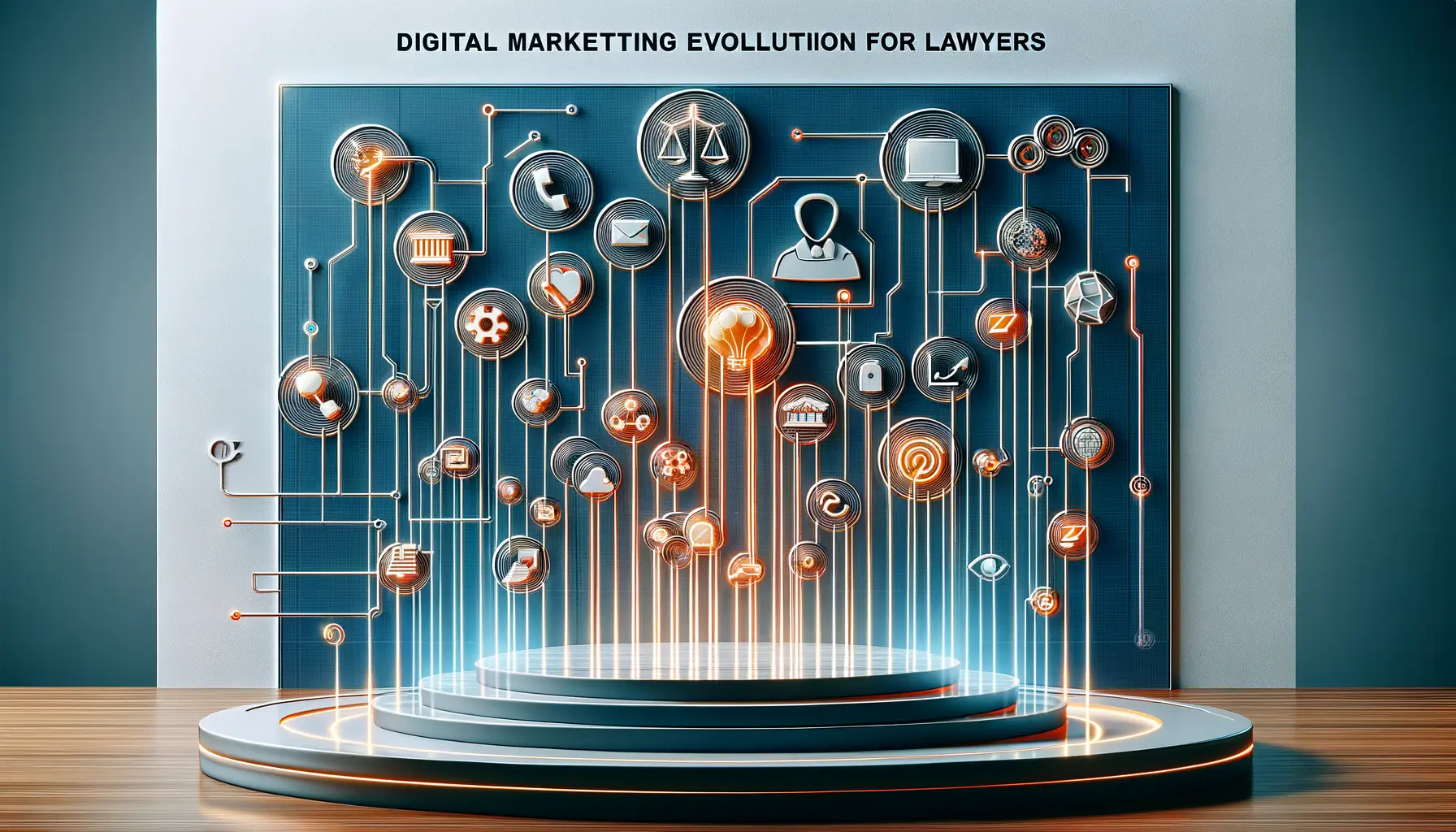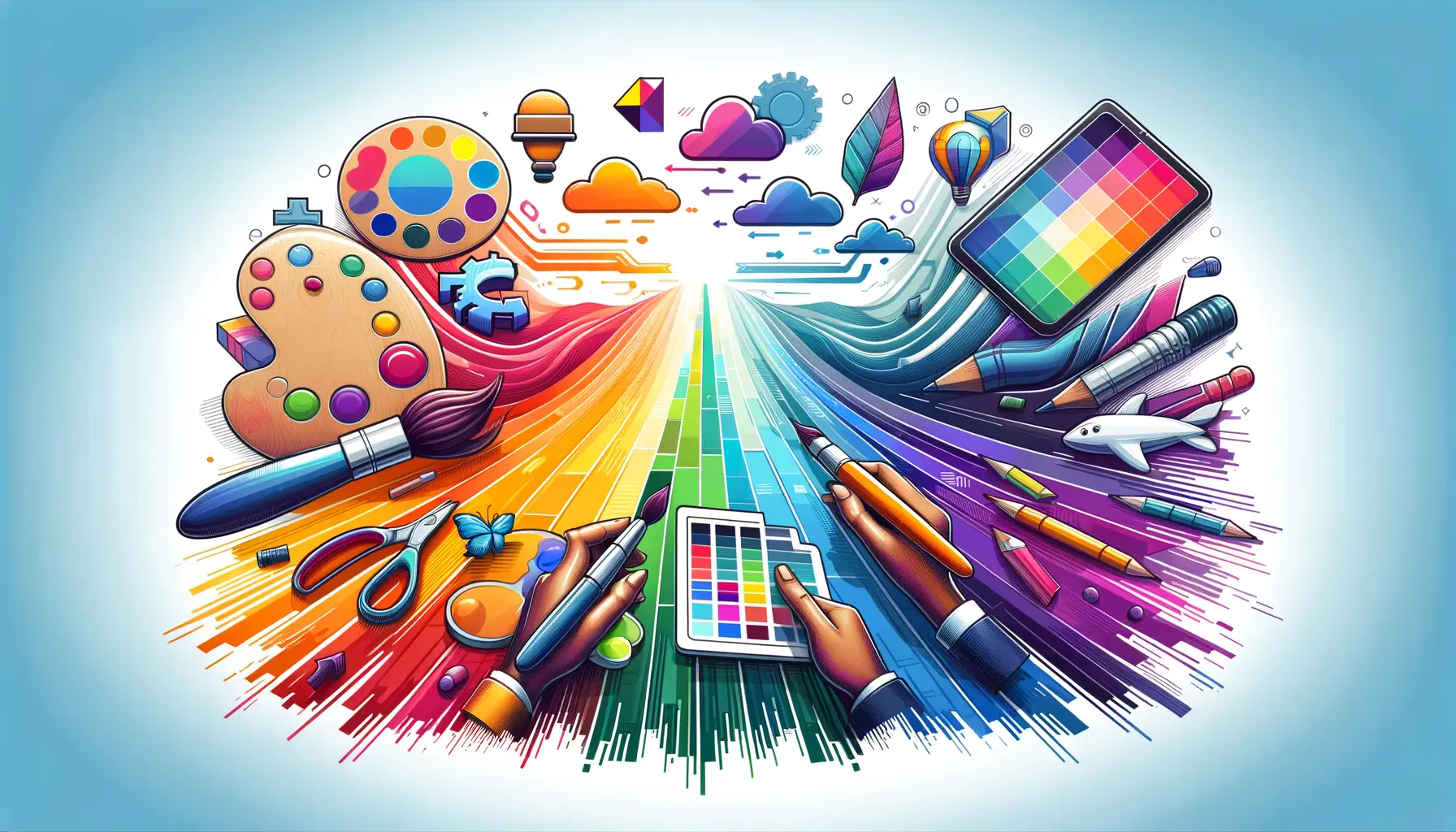The landscape of content marketing is undergoing a transformative shift, with artificial intelligence (AI) at the forefront of this evolution.
As we step into 2024, the integration of AI into content marketing strategies is not just an emerging trend but a fundamental change in how content is created, distributed, and consumed.
This shift is driven by the need for more personalized, efficient, and engaging content that meets the ever-evolving expectations of audiences across various digital platforms.
AI’s role in content marketing transcends beyond mere automation of tasks; it is reshaping the very fabric of content creation and audience engagement.
By leveraging AI, marketers can harness the power of data analytics, natural language processing, and machine learning to create content that is not only relevant but also deeply resonant with their target audience.
This revolution is not just about keeping pace with technological advancements but about redefining the boundaries of creativity and innovation in content marketing.
- The Impact of AI on Content Creation and Strategy
- Optimizing Content Distribution with AI
- User Experience with AI-Driven Content
- AI’s Role in Content Marketing Analytics
- Future Trends: AI and the Evolution of Content Marketing
- Challenges in AI-Driven Content Marketing
- Maximizing ROI with AI-Driven Content Marketing Strategies
- The AI Revolution in Content Marketing
- AI Evolution in Content Marketing 2024 FAQs
The Impact of AI on Content Creation and Strategy
The advent of AI-powered tools has revolutionized the process of content creation, making it possible to generate high-quality, relevant content at scale.
These tools, equipped with advanced algorithms, can analyze vast amounts of data to identify trends, preferences, and behaviors of target audiences.
This capability allows for the creation of tailored content that speaks directly to the interests and needs of consumers, enhancing engagement and fostering a deeper connection with the brand.
Moreover, AI’s ability to automate routine content creation tasks frees up marketers to focus on strategic planning and creative endeavors.
This shift not only boosts productivity but also encourages innovation, as marketers can now dedicate more time to exploring new ideas and experimenting with different content formats and storytelling techniques.
Enhancing Content Personalization
Personalization is at the heart of modern content marketing, and AI is the engine driving this focus.
By analyzing user data, AI can help marketers deliver personalized content experiences at an unprecedented scale.
From customized email marketing campaigns to dynamic website content that adapts to user behavior, AI enables content to be tailored to the individual preferences of each user, significantly increasing the relevance and effectiveness of marketing efforts.
This level of personalization not only improves user engagement but also boosts conversion rates.
Consumers are more likely to interact with content that feels specifically designed for them, leading to a more satisfying user experience and a stronger brand loyalty.
AI’s role in personalization is a game-changer, setting new standards for how brands communicate with their audiences.
AI in content marketing is not just about efficiency; it’s about creating more meaningful and personalized connections with audiences.
Optimizing Content Distribution with AI
The distribution of content is as crucial as its creation, and AI plays a pivotal role in ensuring that content reaches the right audience at the right time.
Through sophisticated algorithms and machine learning, AI systems can analyze user engagement patterns and predict the optimal channels and times for content distribution.
This not only maximizes the visibility of content but also enhances the efficiency of marketing campaigns by targeting users when they are most receptive.
AI-driven content distribution tools can automatically adjust publishing schedules and select the most effective platforms for each piece of content, whether it be social media, email newsletters, or other digital channels.
This dynamic approach to content distribution helps marketers achieve a broader reach and higher engagement rates, ultimately driving more traffic and conversions.
Content Performance Analysis and Insights
One of the most significant advantages of integrating AI into content marketing is the ability to track and analyze the performance of content in real-time.
AI tools can provide detailed insights into how content is performing across different platforms, offering valuable data on user engagement, content reach, and conversion rates.
This information is crucial for marketers to understand what resonates with their audience and to refine their content strategy accordingly.
- Engagement Metrics: AI can track a variety of engagement metrics, such as click-through rates, time spent on page, and social media interactions, to gauge the effectiveness of content.
- Content Optimization: Based on performance data, AI can suggest improvements to content, such as tweaking headlines or adjusting the content format, to enhance user engagement.
- Trend Analysis: AI can identify emerging trends in user behavior and content engagement, enabling marketers to adapt their strategies to stay ahead of the curve.
AI-Enhanced SEO Strategies
Search engine optimization (SEO) is a critical component of content marketing, and AI is transforming how marketers optimize content for search engines.
AI-powered SEO tools can analyze search trends, keyword performance, and competitor strategies to provide actionable insights for improving content visibility and search rankings.
- Keyword Optimization: AI tools can suggest the most effective keywords and phrases to include in content, based on search volume and competition.
- Content Relevance: By analyzing search intent, AI can help ensure that content aligns with what users are searching for, increasing the likelihood of higher search rankings.
- Link Building: AI can identify opportunities for building high-quality backlinks, a crucial factor in SEO, by analyzing the link profiles of competitors and identifying authoritative sources.
Leveraging AI for content distribution and SEO optimization not only enhances the reach and visibility of content but also ensures that it delivers value to the right audience at the right time.
User Experience with AI-Driven Content
The user experience (UX) is paramount in content marketing, and AI is instrumental in creating more engaging and interactive content experiences.
By leveraging AI, marketers can design content that is not only informative and relevant but also highly engaging and tailored to the preferences of individual users.
This personalized approach significantly enhances the user experience, leading to increased engagement, longer dwell times, and higher conversion rates.
AI technologies such as chatbots, interactive videos, and personalized content recommendations are redefining how users interact with content.
These tools provide a more dynamic and immersive content experience, encouraging users to engage with the content on a deeper level.
By facilitating a two-way interaction between the brand and its audience, AI-driven content fosters a sense of connection and loyalty that is invaluable in today’s competitive digital landscape.
Interactive Content and Chatbots
- Chatbots offer instant, personalized interactions, answering queries, providing recommendations, and guiding users through the content, enhancing user engagement and satisfaction.
- Interactive videos and quizzes can adapt in real-time based on user responses, creating a unique and personalized content experience for each user.
Personalized Content Recommendations
- AI algorithms analyze user behavior and preferences to recommend content that is most relevant and appealing to each individual, ensuring users are presented with content that interests them.
- By dynamically adjusting content recommendations based on real-time interactions, AI keeps the content experience fresh and engaging for users, encouraging them to explore more content.
Visual and Voice Search Optimization
- AI enhances UX by optimizing content for visual and voice search, allowing users to find information more naturally and intuitively, aligning with their search preferences.
- Optimizing for these search methods improves content discoverability and accessibility, catering to the growing trend of using voice assistants and visual search technologies.
AI-driven enhancements in user experience not only make content more accessible and enjoyable but also help build a stronger, more engaged community around a brand.
AI’s Role in Content Marketing Analytics
Artificial intelligence is revolutionizing content marketing analytics by providing deeper insights and enabling more informed decision-making.
With AI, marketers can move beyond traditional analytics to understand the intricate patterns of user behavior and content interaction.
This advanced analysis allows for the optimization of content strategies in real-time, ensuring that marketing efforts are always aligned with audience needs and preferences.
AI-powered analytics tools can process vast amounts of data from various sources, including social media, website interactions, and email campaigns, to offer a comprehensive view of content performance.
This holistic approach to analytics enables marketers to identify successful content, uncover areas for improvement, and predict future content trends.
By leveraging these insights, marketers can make data-driven decisions that enhance content relevance, engagement, and ROI.
Real-Time Content Optimization
- AI analytics enable the real-time tracking of content performance, allowing marketers to quickly adjust strategies and content for optimal engagement.
- Through predictive analytics, AI can forecast content trends and user preferences, guiding the creation of content that resonates with the audience’s future interests.
Enhanced Audience Segmentation
- AI-driven analytics tools offer advanced audience segmentation capabilities, enabling marketers to tailor content to specific user groups based on their behavior, interests, and demographics.
- This targeted approach ensures that content is highly relevant to each segment, increasing engagement and conversion rates.
Automated Reporting and Insights
- AI simplifies the analytics process by automating the generation of reports and insights, saving time and reducing the potential for human error.
- Automated insights highlight key performance indicators (KPIs) and actionable recommendations, helping marketers focus on strategies that drive success.
The integration of AI into content marketing analytics transforms data into actionable insights, empowering marketers to make smarter, more effective decisions.
Future Trends: AI and the Evolution of Content Marketing
As we look towards the future, it’s clear that AI will continue to play a pivotal role in shaping the evolution of content marketing.
The rapid advancements in AI technology are set to introduce new trends and capabilities, pushing the boundaries of how content is created, optimized, and personalized.
These future trends will not only enhance the effectiveness of content marketing strategies but also offer unprecedented opportunities for brands to connect with their audiences in innovative ways.
The integration of AI into content marketing is expected to become more sophisticated, with AI technologies becoming an integral part of every stage of the content marketing lifecycle.
From content creation and optimization to distribution and analytics, AI will enable marketers to deliver more personalized, engaging, and effective content experiences at scale.
As these technologies evolve, we can anticipate a shift towards more dynamic, interactive, and immersive content formats that leverage AI to meet the ever-changing preferences of consumers.
Generative AI and Creative Content Production
- Generative AI models will revolutionize content production by creating original, high-quality content, including text, images, and videos, tailored to specific audience segments.
- This shift will enable marketers to produce diverse and creative content at scale, reducing the time and resources required for content creation.
AI-Driven Content Personalization and Customization
- Future AI technologies will offer even more advanced personalization capabilities, allowing for the customization of content in real-time based on user interactions and preferences.
- This level of personalization will enhance user engagement and loyalty by delivering highly relevant and compelling content experiences.
Immersive and Interactive Content Experiences
- AI will enable the creation of immersive content experiences, such as virtual and augmented reality, providing users with engaging and interactive ways to connect with brands.
- These immersive experiences will offer new avenues for storytelling and brand engagement, deepening the emotional connection between brands and their audiences.
The future of content marketing lies in leveraging AI to create more personalized, creative, and immersive content experiences, driving deeper connections with audiences and fostering brand loyalty.
Challenges in AI-Driven Content Marketing
While the integration of AI into content marketing opens up a world of possibilities, it also presents several challenges and ethical considerations that marketers must navigate.
As AI technologies become more prevalent, concerns regarding data privacy, content authenticity, and the potential for bias in AI algorithms have emerged.
Addressing these challenges is crucial for ensuring that AI-driven content marketing is both effective and ethical, fostering trust between brands and their audiences.
Marketers must be vigilant in their use of AI, ensuring that they adhere to data privacy regulations and ethical guidelines.
This includes being transparent about the use of AI in content creation and distribution, as well as taking steps to mitigate bias and ensure the accuracy of AI-generated content.
By prioritizing ethical considerations and responsible AI use, marketers can build stronger relationships with their audiences based on trust and integrity.
Data Privacy and Security
- With AI’s reliance on data, ensuring the privacy and security of user information is paramount. Marketers must comply with data protection regulations, such as GDPR and CCPA, and adopt robust data security measures.
- Transparency about data collection and use is essential for maintaining user trust. Clear communication and consent mechanisms should be in place to inform users about how their data is being used.
Content Authenticity and Transparency
- As AI-generated content becomes more common, maintaining content authenticity and transparency is crucial. Marketers should clearly disclose the use of AI in content creation to avoid misleading audiences.
- Ensuring the accuracy and reliability of AI-generated content is essential to prevent the spread of misinformation and maintain the credibility of the brand.
Addressing Bias in AI Algorithms
- AI algorithms can inadvertently perpetuate biases present in their training data. Marketers must actively work to identify and mitigate bias in AI-driven content marketing strategies.
- Regular audits of AI algorithms and diverse training datasets can help reduce bias, ensuring that content marketing efforts are inclusive and equitable.
Ignoring the ethical considerations and challenges associated with AI-driven content marketing can undermine audience trust and damage brand reputation.
Maximizing ROI with AI-Driven Content Marketing Strategies
Implementing AI-driven content marketing strategies offers significant opportunities for brands to maximize their return on investment (ROI).
By leveraging AI to enhance content relevance, personalization, and efficiency, marketers can achieve higher engagement rates, increased conversion rates, and improved customer loyalty.
The key to unlocking these benefits lies in the strategic integration of AI technologies across the content marketing lifecycle, from planning and creation to distribution and analysis.
To maximize ROI, marketers must focus on aligning AI-driven content marketing strategies with overall business objectives, ensuring that every piece of content serves a specific purpose and contributes to the brand’s goals.
This approach not only enhances the effectiveness of content marketing efforts but also enables marketers to measure and demonstrate the tangible impact of their AI investments.
Strategic Integration of AI in Content Marketing
- Identify areas within the content marketing process where AI can add the most value, such as content creation, personalization, or analytics, and prioritize the implementation of AI technologies in these areas.
- Develop a roadmap for integrating AI into content marketing strategies, including clear objectives, timelines, and metrics for success.
Leveraging AI for Data-Driven Insights
- Utilize AI-powered analytics tools to gain deep insights into audience behavior and content performance, enabling data-driven decision-making.
- Apply these insights to refine content strategies, focusing on what works best for engaging the target audience and driving conversions.
Measuring and Optimizing AI’s Impact on ROI
- Establish key performance indicators (KPIs) to measure the impact of AI-driven content marketing strategies on ROI, such as engagement rates, lead generation, and customer acquisition costs.
- Continuously monitor performance against these KPIs and adjust strategies as needed to ensure ongoing optimization of ROI.
By strategically integrating AI into content marketing and leveraging data-driven insights, brands can significantly enhance their marketing effectiveness, driving higher ROI and achieving sustainable competitive advantage.
The AI Revolution in Content Marketing
The journey through the AI evolution in content marketing in 2024 reveals a landscape rich with opportunities and challenges.
As AI continues to reshape the way content is created, distributed, and consumed, marketers are presented with unprecedented tools to enhance engagement, personalize experiences, and drive efficiency.
The strategic integration of AI into content marketing not only promises to elevate the quality and relevance of content but also to redefine the relationship between brands and their audiences.
Key Takeaways for Marketers
- AI-driven content creation and automation offer the ability to produce high-quality, personalized content at scale, saving time and resources while increasing engagement.
- Advanced analytics and AI tools provide deeper insights into audience behavior, enabling marketers to make data-driven decisions that optimize content strategies and ROI.
- Challenges such as data privacy, content authenticity, and algorithmic bias require careful navigation to ensure ethical and effective content marketing practices.
- The future of content marketing lies in leveraging AI for more personalized, interactive, and immersive content experiences, fostering deeper connections with audiences.
Looking Ahead: The Future of AI in Content Marketing
As we look to the future, the role of AI in content marketing is set to grow even more significant.
Marketers must stay abreast of technological advancements, continually adapting their strategies to leverage the full potential of AI.
The evolution of AI in content marketing is not just about adopting new tools but about embracing a new mindset that prioritizes personalization, efficiency, and ethical considerations.
The successful integration of AI into content marketing strategies will depend on marketers’ ability to balance technological innovation with human creativity and ethical responsibility.
By doing so, brands can harness the power of AI to create content that resonates deeply with their audiences, builds lasting relationships, and drives sustainable growth.
The AI evolution in content marketing is an ongoing journey, and those who navigate it wisely will reap the rewards of deeper engagement, enhanced loyalty, and increased ROI.
Want your website to top Google search rankings? Leave the SEO to our professional agency!
AI Evolution in Content Marketing 2024 FAQs
As we navigate the transformative landscape of AI in content marketing for 2024, several questions arise. Here are the answers to some of the most frequently asked questions:
AI is revolutionizing content creation by automating processes, generating data-driven insights for personalized content, and enhancing creativity through advanced tools.
AI optimizes content distribution by analyzing user engagement to determine the best channels and times for publishing, ensuring maximum reach and impact.
Yes, AI significantly enhances content marketing ROI by increasing efficiency, personalizing user experiences, and providing actionable insights for strategy optimization.
Challenges include ensuring data privacy, maintaining content authenticity, addressing algorithmic bias, and keeping the human element in storytelling.
AI enhances SEO by providing insights on search trends, optimizing content for voice and visual search, and personalizing user experiences to improve rankings.
Marketers must consider data privacy, consent for data use, transparency about AI’s role in content creation, and efforts to mitigate bias in AI algorithms.
AI-driven analytics offer deeper insights into content performance and audience behavior, enabling more targeted and effective content marketing strategies.
Content marketers should anticipate advancements in generative AI, increased personalization, immersive content experiences, and ethical AI use.










